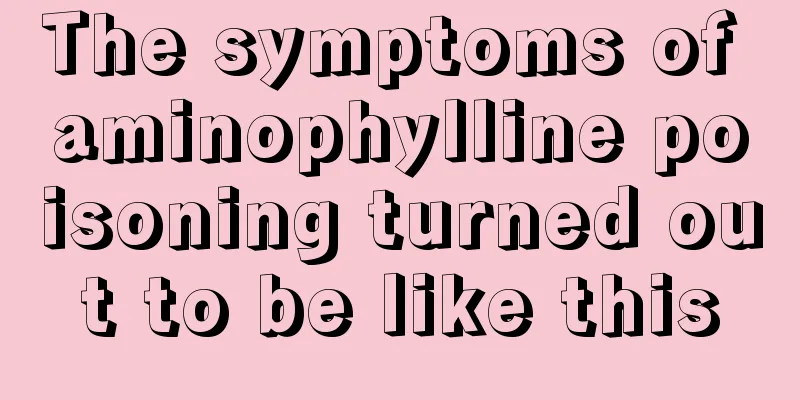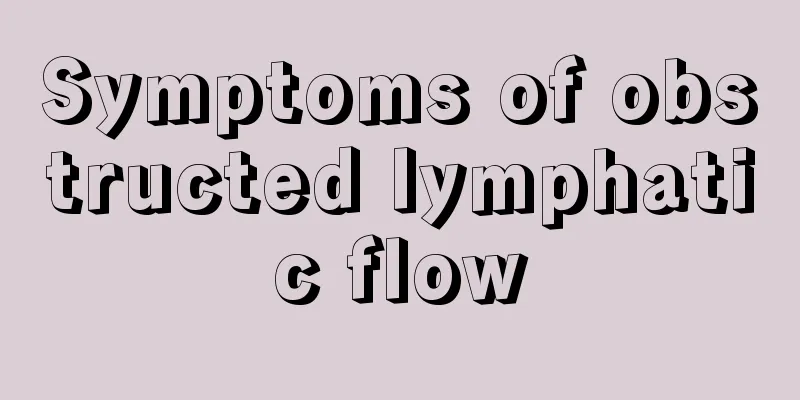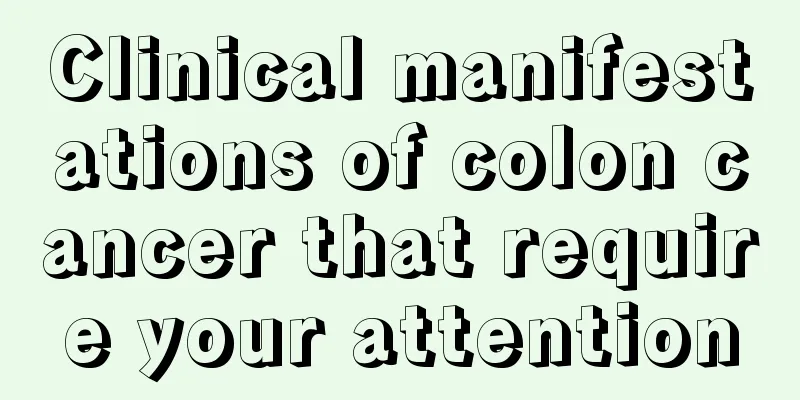The symptoms of aminophylline poisoning turned out to be like this

|
Aminophylline is a drug used to treat diseases such as bronchial asthma and asthmatic bronchitis. However, because its effective blood concentration and toxic blood concentration are very close, it often causes poisoning in people, seriously endangering human health. If not treated in time, it may even lead to death. Therefore, it is particularly important to understand the symptoms of aminophylline poisoning and to achieve early detection and early treatment. Early symptoms of aminophylline poisoning include burning pain in the upper abdomen, nausea, vomiting, diarrhea, polyuria, headache, flushing, thirst, etc. In more serious cases, there are irritability, mental confusion, syncope, mental excitement or inhibition, palpitations, decreased blood pressure and rapid breathing. In severe cases, there are muscle tremors, epileptic seizures, dilated pupils, fever, tachycardia, and heart rhythm disorders. Death may occur due to ventricular fibrillation or respiratory or circulatory system failure. Excessive dosage or too fast intravenous administration is the most common cause of excessive blood concentration of aminophylline and poisoning. There are many factors that affect the metabolism and clearance of aminophylline. The dose that causes poisoning varies in different situations and among different patients, and there are large individual differences. The half-life of aminophylline can be prolonged in the elderly or in patients with poor heart, liver, or kidney function, shock, dehydration, acid-base imbalance, severe viral infection, or certain drugs (such as macrolides). Even a small dose can result in excessive blood drug concentrations that can cause poisoning. Aminophylline should be used with caution in children. Because children's excretion and detoxification functions are not yet perfect, their clearance rate is naturally very low. An improper dosage can easily cause poisoning, which can be life-threatening in severe cases. The dosage for children should be calculated based on body weight. Data show that if >5 mg/kg body weight is taken at a time, poisoning can occur within 0.5-1 hour. In severe cases, heart failure or cerebral edema may occur and lead to death. Once symptoms of poisoning appear, the patient and family members should first be asked whether they have taken the aminophylline correctly, and whether other drugs that affect the metabolism of the aminophylline are used in combination, to rule out poisoning symptoms caused by other drugs, to monitor whether the blood concentration of aminophylline is significantly higher than the normal range, and to see whether the poisoning symptoms are relieved or disappear after stopping the medication. If severe poisoning symptoms occur, emergency treatment should be given immediately. |
<<: It turns out that the early symptoms of vitiligo are these four
>>: How to prevent Aconitum poisoning
Recommend
Is bladder cancer more hereditary or acquired?
Bladder cancer is one of the more common malignan...
Why does brushing teeth cause nausea?
In the early days, I always had nausea symptoms w...
What is the difference between milk powder and milk
The nutritional value of milk powder and milk is ...
Preoperative nursing measures for laryngeal cancer patients
Patients with laryngeal cancer have a foreign bod...
Lanolin efficacy and function
Lanolin has good skin care, calming and moisturiz...
Does nasopharyngeal cancer have symptoms such as cough?
Nasopharyngeal carcinoma is a common malignant tu...
What is Benzopyrene Epoxide?
Cancer is a very serious disease. Many factors in...
What plants are suitable for the office
Many people keep some flowers and plants in the o...
Is pain in the left posterior shoulder blade caused by lung cancer?
Lung cancer is a serious disease that occurs in t...
What are the main bacterial infectious diseases?
When it comes to some infectious diseases, everyo...
The symptoms of vocal cord inflammation are mainly these
Vocal cord speech disease is relatively common in...
How can I remove stubborn stains?
If you don't pay attention during work or lif...
Will eating garlic cause acne?
Garlic is a food that we often encounter in our d...
What are the effects of Sophora flavescens wash solution?
Women's reproductive health is a very importa...
Folk remedies for treating epilepsy
Epilepsy is a relatively common disease. There ar...









